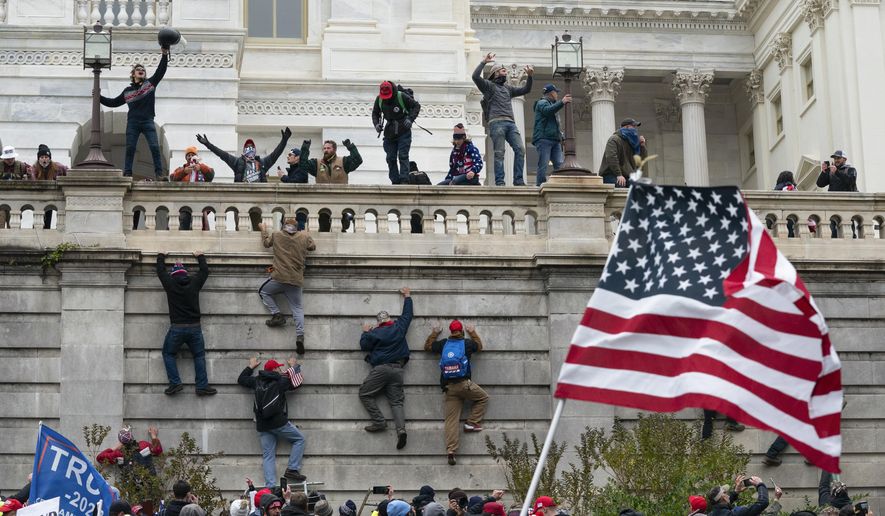The U.S. Capitol Police’s acting director of intelligence says she warned Capitol Police leadership of potential violence days before a pro-Trump mob stormed the Capitol on Jan. 6, but that her assessment went ignored.
Julie Farnam said her team bears no responsibility for the U.S. Capitol Police being caught flat-footed.
“I think we provided the information,” Ms. Farnam told “CBS Mornings.” “I think we did an excellent job. We knew there were going to be thousands of protesters. And we knew there were gonna be extremists there. And I knew things were not gonna be good that day.”
CBS News obtained a copy of the final intelligence assessment issued by Ms. Farnam’s team on Jan. 3.
The report raised concerns about permits obtained by groups affiliated with the “Stop the Steal” movement, which had planned several rallies on Jan. 6.
The report assessed that the group’s rallies were known to attract “White supremacists” and “militia members,” who “actively promote violence.”
The protesters, the report warned, “plan to be armed.”
The assessment also warned of a “sense of desperation and disappointment” on behalf of Trump supporters, which they said, “may lead to more of an incentive to become violent.”
“Congress itself is the target of the 6th,” read the report.
The Capitol Police did not respond to a request for comment, but told CBS that the report was shared among top officials in the department “for planning purposes and distribution to rank and file officers as appropriate.”
Ms. Farnam’s claims that her warnings were ignored by Capitol Police leadership contradict testimony by Yogananda Pittman, who was appointed as acting chief of the Capitol Police in the immediate aftermath of Jan. 6.
In February, Ms. Pittman acknowledged before Congress that the Capitol Police were aware of “a likelihood for violence by extremists,” but said there was “no credible threat” of an attack the likes of which occurred on Jan. 6.
Ms. Pittman stepped down as acting chief in July when the current chief, Tom Manger, was appointed. She now oversees intelligence operations for the Capitol Police, including Ms. Farnam’s team.
Chief Manger told CBS he was unable to speak to why the report was not disseminated throughout the department, as he was not on the force at the time.
“But I can tell you this, that the way intelligence was shared, the way it was disseminated needed vast improvement,” Chief Manger told CBS. “And so today, that kind of intelligence, it would be acted on. We’re in a posture now where we’re not taking any chances,” he said. “Overall, the department bears the majority of the responsibility. I mean, the organization let the men and women of this police department down.”
The Capitol Police have come under intense scrutiny following the attack on the Capitol, and have doubled down efforts to enhance intelligence sharing among members of the force and across federal agencies. Its leadership has also committed to improving recruiting, retention, and training efforts among its officers.
Correction: An earlier version of this story misspelled the first name of Yogananda Pittman, Capitol Police’s assistant chief for protective and intelligence operations.
• Joseph Clark can be reached at jclark@washingtontimes.com.




Please read our comment policy before commenting.